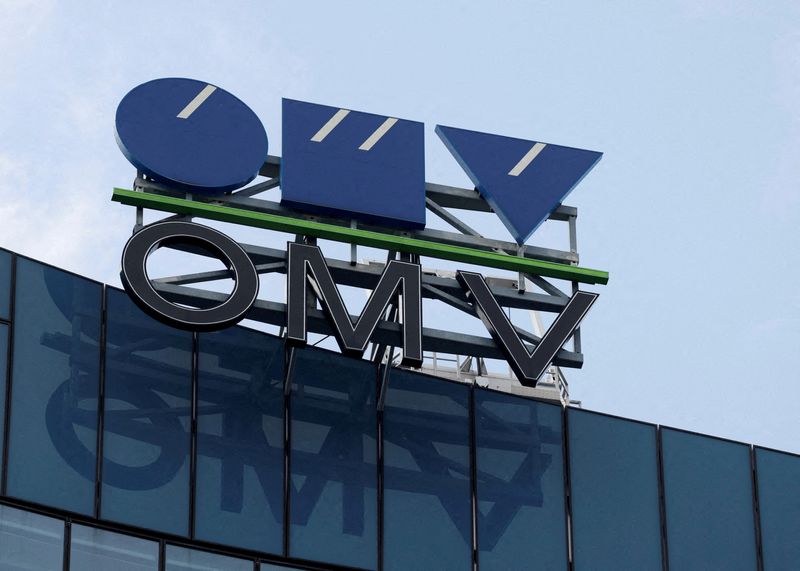By Jason Hovet, Thomas Escritt and Dmitry Zhdannikov
BERLIN/PRAGUE/LONDON (Reuters) -Russian gas flows to Austria were suspended for a second day on Sunday because of a pricing dispute, but other buyers in Europe stepped in to snap up unsold volumes, companies and sources said and data showed.
Russia, which before the Ukraine war was the biggest single supplier of gas to Europe, has lost most of its buyers on the continent as the EU tries to cut its dependence on Russian energy.
Russian gas is still being sold in significant volumes to Slovakia and Hungary, as well as to the Czech Republic which does not have a direct contract. Smaller volumes are going to Italy and Serbia.
Gazprom (MCX:GAZP) on Saturday halted supplies to OMV after the Austrian company threatened to impound some of the Russian state firm's gas as compensation for an arbitration it had won over a contractual dispute.
Flows to Austria were still suspended on Sunday but the overall daily supply to Europe via Ukraine - the main transit route for Russian gas to the EU - would remain at 42.4 million cubic metres per day, Gazprom confirmed, around the same volume as usual. It did not comment further.
Austria had been receiving 17 mcm per day before the cut-off, and those volumes are now finding new buyers in Europe.
Slovak state-owned firm SPP said it was still receiving gas from Russia and suggested others were buying more because there was still "great interest" in Russian gas in Europe.
A source familiar with Russian gas supplies in Europe said gas was still cheaper from Russia than from many other sources, so Austrian volumes had quickly been resold.
He declined to name the companies which bought gas previously destined for Austria. Austria has said it has plentiful gas stocks to cover the shortfall and can import from Germany and Italy when needed.
LAST DAYS
The European gas market has been sensitive to geopolitical developments and supply issues, with the end of Ukraine gas transit expected at the end of the year.
Colder temperatures in Europe have also been driving up heating demand, leading to withdrawals from EU gas storage sites earlier than last year.
"Supply and weather drivers have created concerns about end-of-winter gas stocks which, given the EU's storage targets, might imply a need to buy significant (liquefied natural gas) volumes in the summer," BNP Paribas (OTC:BNPQY) senior commodities strategist Aldo Spanjer said.
The front-month gas price at the Dutch TTF hub, the European benchmark price, closed at 45.72 euros per megawatt hour on Friday, its highest in nearly a year.
At its peak Russia was supplying 35% of Europe's gas, but since the Ukraine war started in 2022 Gazprom has lost market share to Norway, the U.S. and Qatar.
The company's remaining flows to Europe are not expected to continue for much longer, with the Soviet-era pipeline via Ukraine due to shut at the end of this year as Kyiv does not want to extend a transit agreement.
The Yamal-Europe pipeline via Belarus has already closed after a dispute, while Russia blamed the U.S. and Britain for explosions under the Baltic Sea that closed the Nord Stream route.

Washington and London have denied they blew up the pipelines. The Wall Street Journal has reported Ukrainian officials were behind the attack. Kyiv has denied that.
If Ukraine closes the gas transit route, significant Russian supplies will mainly go to Slovakia and Hungary, which gets most of its volumes via a pipeline running mostly through Turkey.